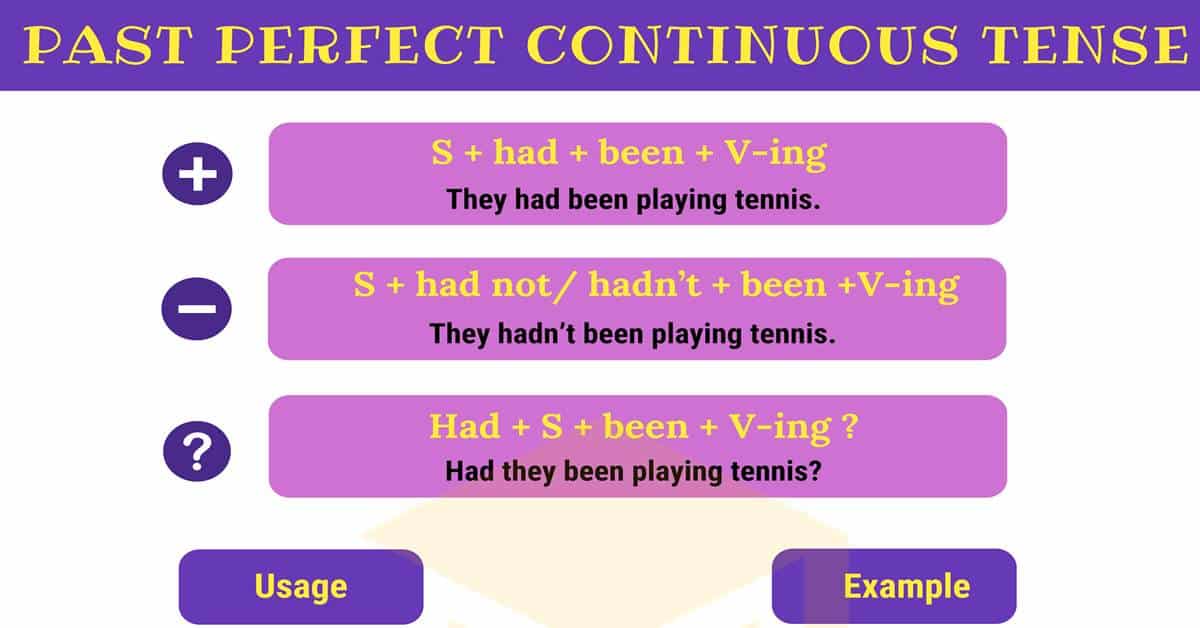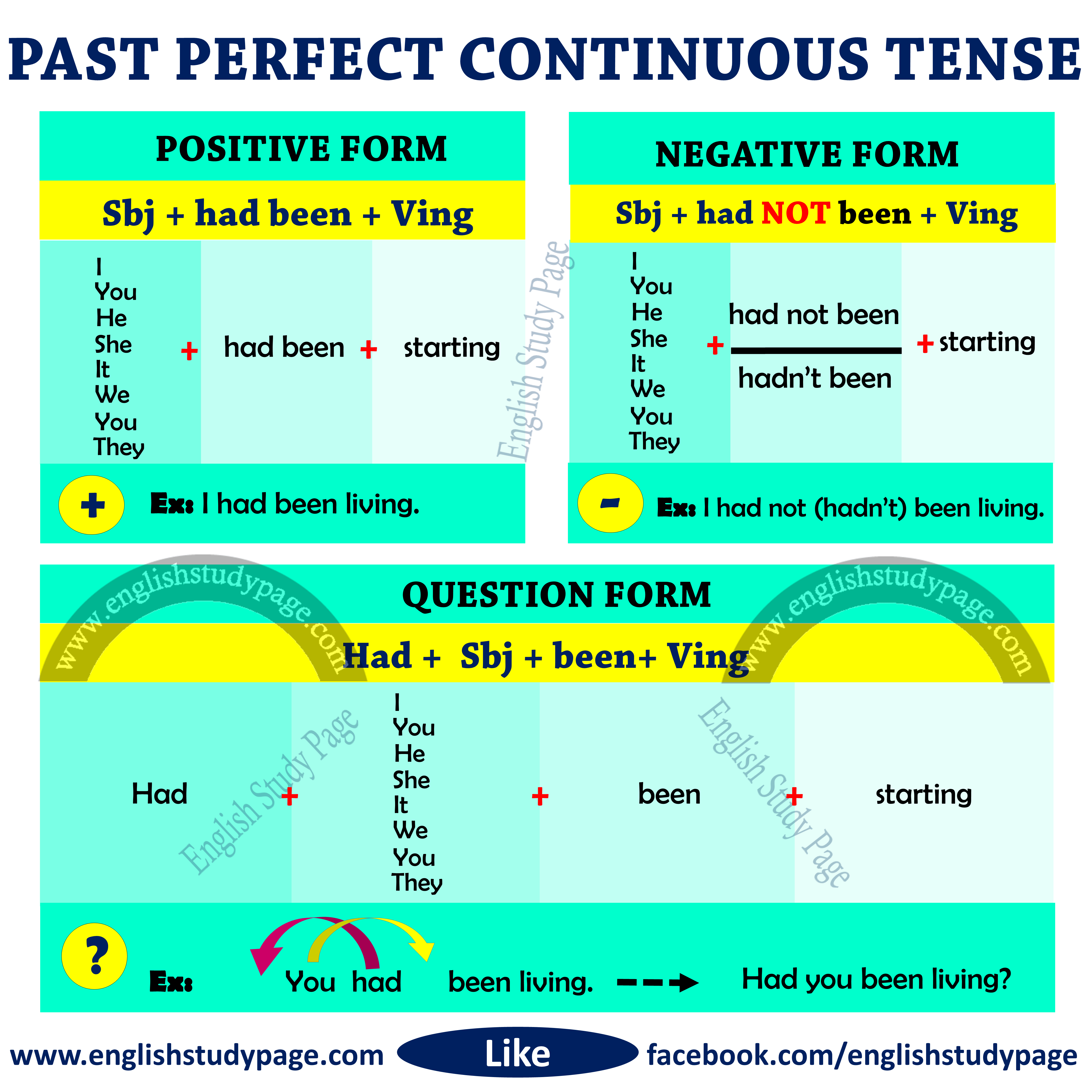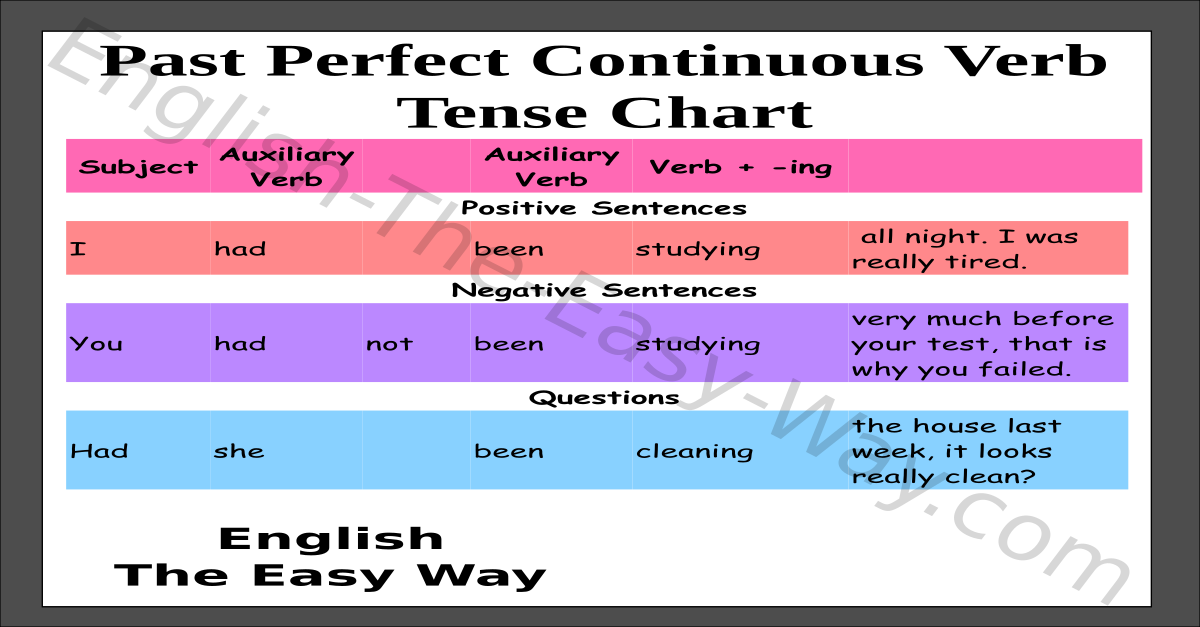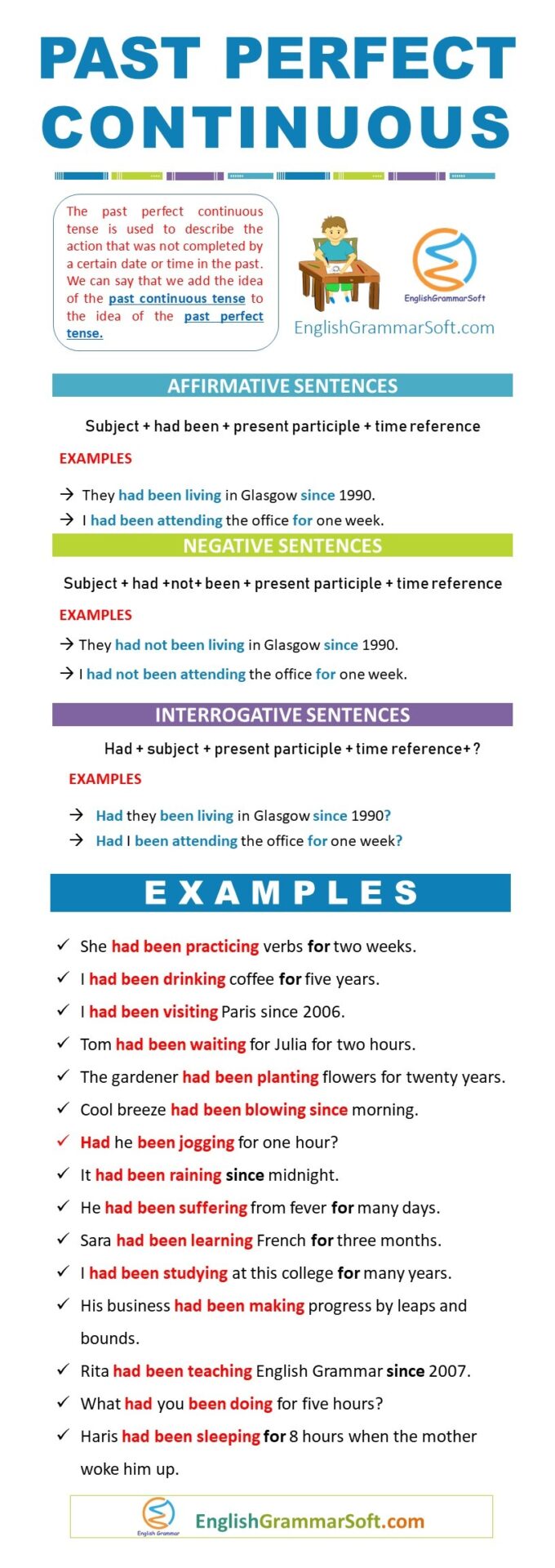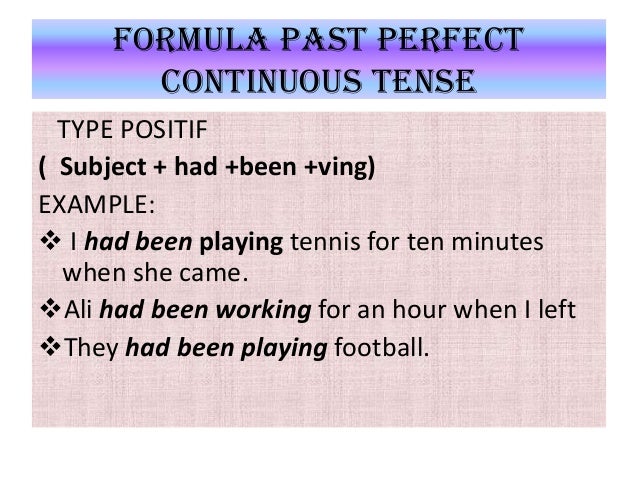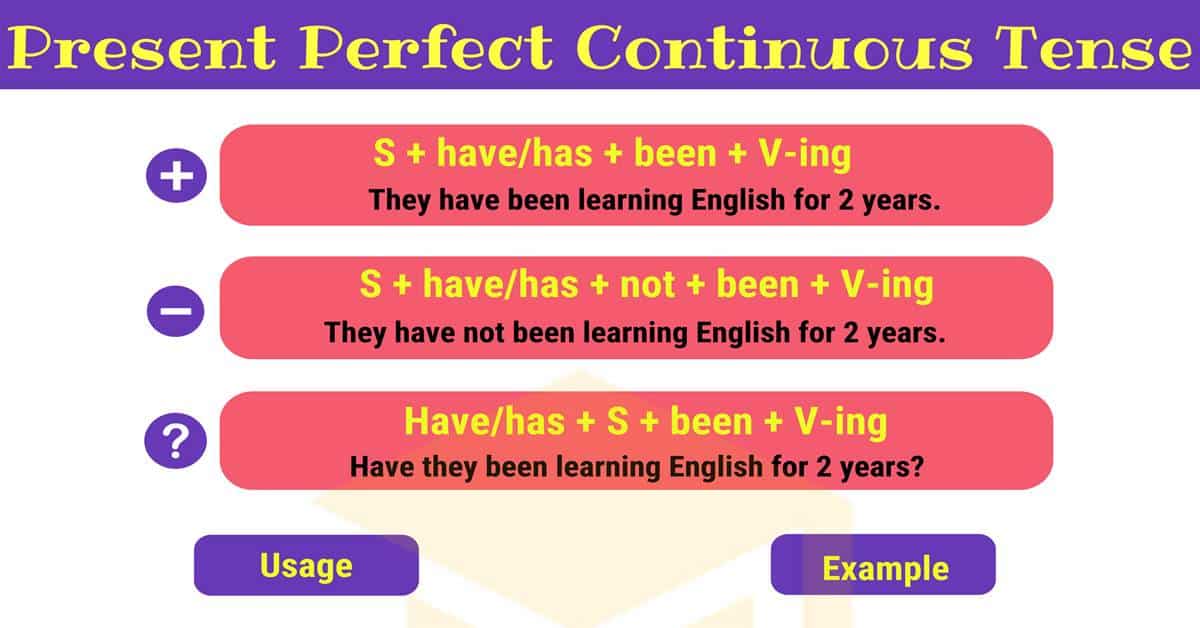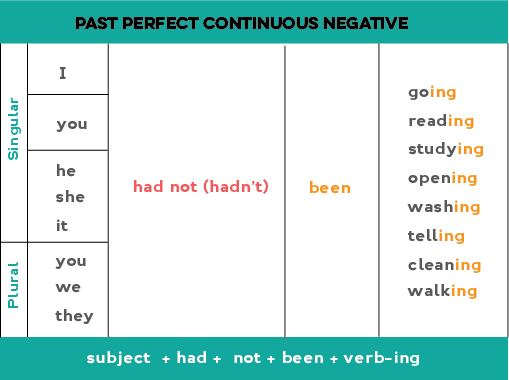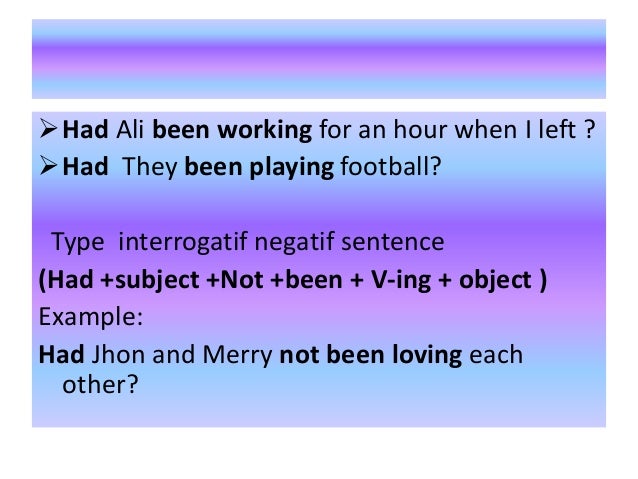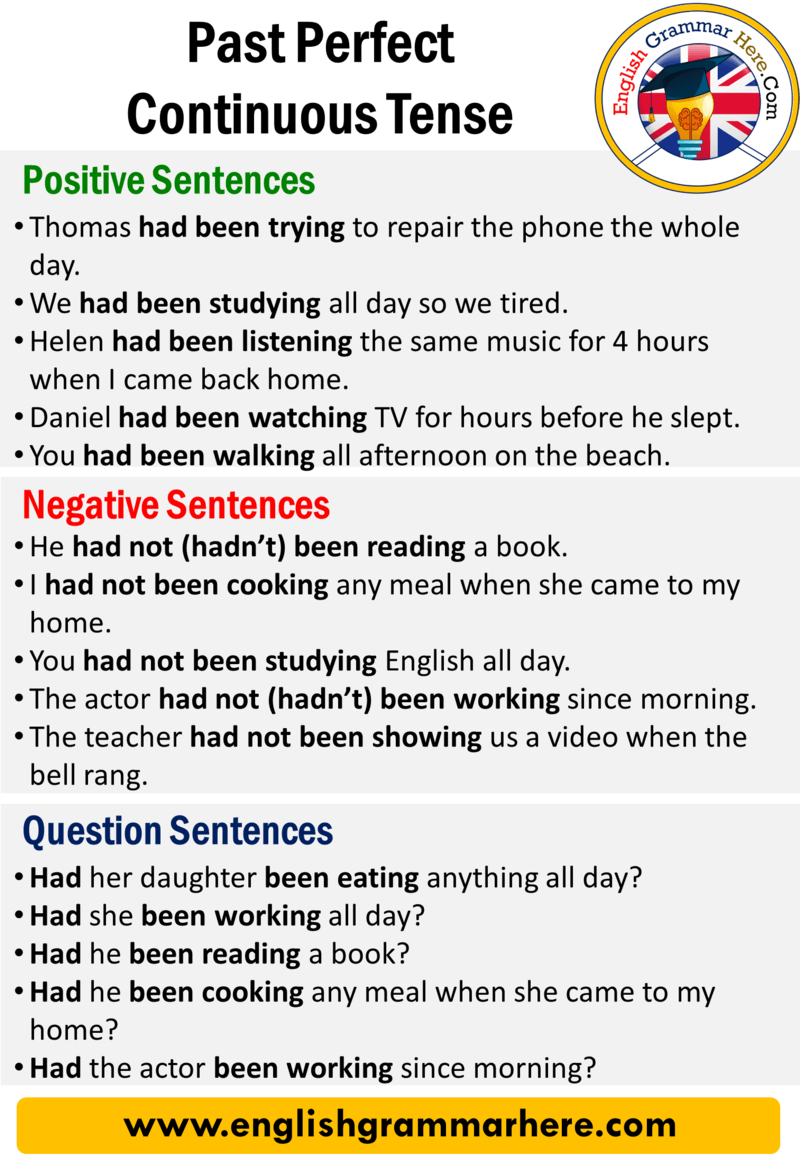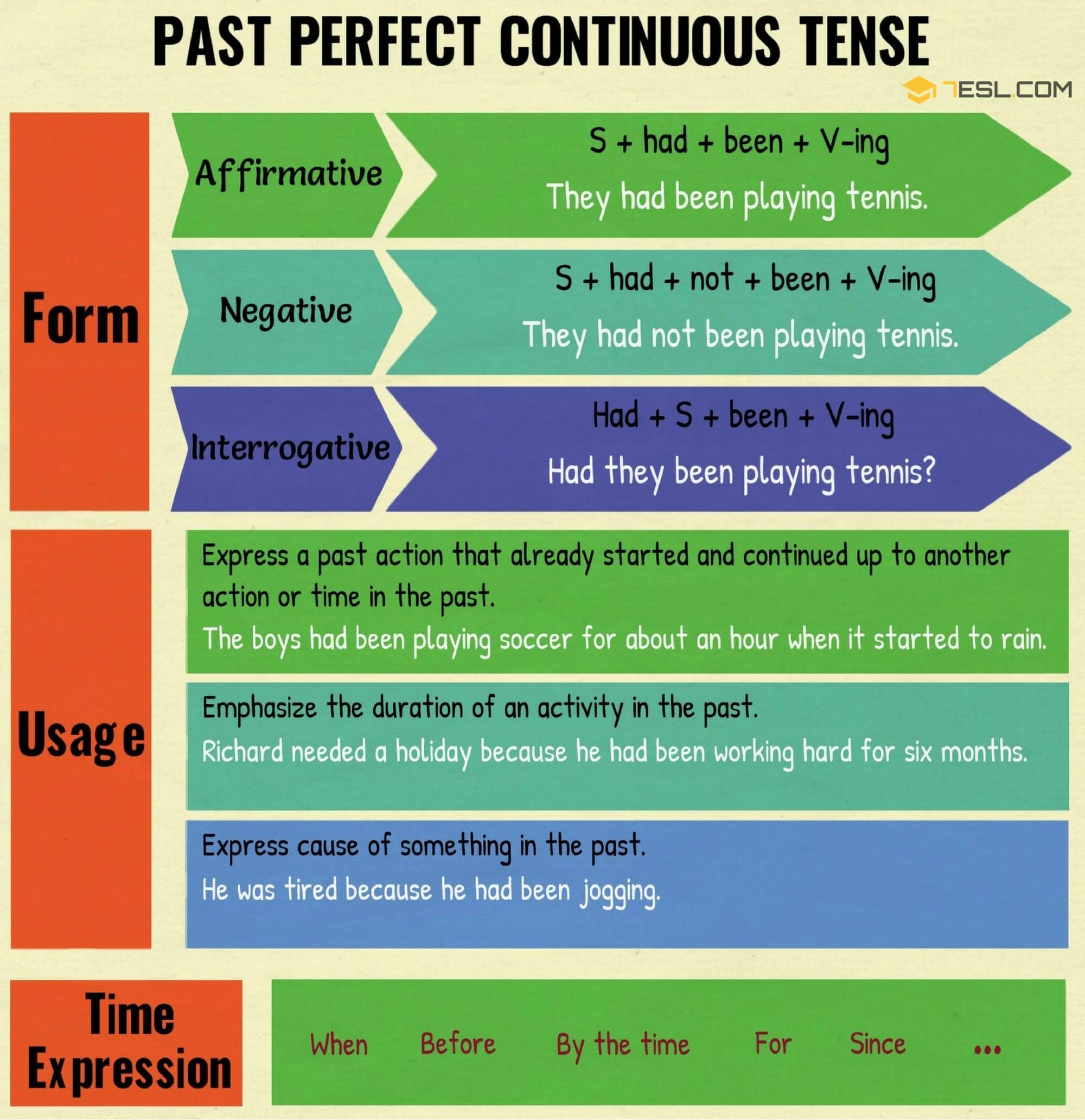Past Perfect Continuous Tense Formula
Subject had been base form ing object time reference.
Past perfect continuous tense formula. Past perfect continuous tense is used to express the action that started in the past and continued in the past for some time. The past perfect continuous tense is like the past perfect tense but it expresses longer actions in the past before another action in the past. For two hours for all day.
This video tells how to tell the duration of running activity in the past. So we can say that the formula for past perfect continuous tense for first person singular is as follows. For example when i was walking yesterday it started raining.
The past perfect continuous tense is constructed using had been the verb s present participle root ing. It expresses continued nature of an action that started and stopped at some point in the past. Since morning since structure formula.
This indicates the duration of an action taking place or the amount of time which has been used for completing a task. It is also called past perfect progressive tense. Ram started waiting at 9am.
Past perfect continuous tense past perfect progressive tense is used to describe an ongoing action that started in past and continued for some time in past. The formula for past perfect continuous tense when the first person is singular is that the sentence starts with i and had been then a verb in its 1st form with ing followed by an object which is optional. The past perfect continuous tense also known as the past perfect progressive tense shows that an action that started in the past continued up until another time in the past.
I arrived at 11am. Present perfect continuous tense is a verb tense that is used when we talk about something that we started in the past but the work is still going on. It points out an action which started in the past and continued in a certain time period.
It has affirmative negative and interrogative sent. The past continuous tense refers to a continuing action or state that was happening at some point in the past.
